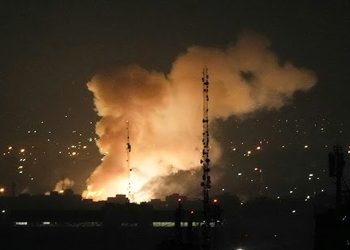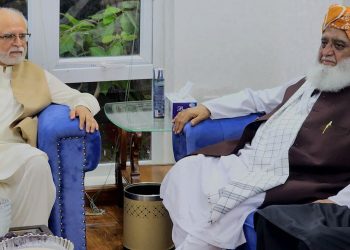After genocide in Palestine and breaking down the capacity of other neighbouring countries that could have been potential support to Palestinians, Israel has attacked Iran in a so-called ‘preemptive strike’ after the 35-member Board of the International Atomic Energy Agency (IAEA) declared “Iran in breach of its non-proliferation obligations on Thursday (June 12, 2025) for the first time in almost 20 years, raising the prospect of reporting it to the U.N. Security Council.”
Before the ‘Report’ could reach the UNSC, Israel launched Operation “Rising Lion,” a series of precision airstrikes and covert drone missions targeting Iranian nuclear sites, air defenses, ballistic missile facilities, and top leadership. It resulted in high-profile casualties, damaging Iran’s Natanz enrichment site and Khondab reactor, although the buried Fordow facility remained intact. Deployment of over 200 aircraft and drones, under strong intelligence coordination, signaled Israeli willingness to use expansive military reach.
Iran responded swiftly on June 13, launching a retaliation strike called “Operation True Promise III,” firing over 150 ballistic missiles and over 100 drones toward Israeli targets. Israel’s Iron Dome and U.S. assistance shot down the majority, though at least 22 Israelis sustained injuries by Friday midnight. Meanwhile, the U.S. also activated its air defense systems in Jordan, Saudi Arabia, and Syria. Nothing unusual — the pioneer of state terrorism supported Israel’s state terrorism yet again. It is on since Israel’s inception in 1948, despite Israel being accused by many international observers and human rights organizations of engaging in systematic state terrorism against Palestinians and, increasingly, neighboring nations.
Backed militarily, economically, and diplomatically by the United States and its Western allies, Israel has built a formidable state machinery capable of suppressing dissent, violating international law, and pursuing aggressive military strategies with near-total impunity. The recent military confrontation with Iran marks an alarming escalation in an already unstable region. As Iran retaliates, the global community stands at a critical juncture, and the role of major powers and the United Nations Security Council (UNSC) is once again under scrutiny.
Since World War II, Israel has been the largest cumulative recipient of U.S. foreign assistance. According to the Congressional Research Service (CRS), as of 2024, the United States has provided Israel with over $160 billion in bilateral assistance. This aid has largely been in the form of military support — funding advanced weapons systems, missile defense programs, and maintaining Israel’s qualitative military edge in the region.
Beyond direct U.S. aid, Western nations — particularly Germany, the UK, and France — have also supplied Israel with economic, military, and technological support. Germany, for instance, has supplied submarines to Israel capable of carrying nuclear warheads. These transfers have bolstered Israel’s capacity not just for defense but for offensive operations, both overt and covert, across the Middle East.
This unparalleled support has enabled Israel to enforce a brutal occupation in the West Bank, maintain a 16-year blockade on Gaza, and carry out numerous military operations that have left tens of thousands of civilians dead or displaced. Every dollar in military aid effectively empowers Israel to act without meaningful consequences, reinforcing a culture of impunity.
Israel’s record in the Palestinian territories is a long-standing case of state terrorism: collective punishment, targeted assassinations, home demolitions, mass arrests without trial, and the use of live ammunition against unarmed protestors. The 2023–2024 Gaza assault alone killed over 35,000 Palestinians, the majority of them women and children, according to international relief organizations. Critical infrastructure — hospitals, schools, water plants — was deliberately destroyed, turning Gaza into a humanitarian catastrophe. Today, we shockingly see that Israel has almost wiped out Palestine with the veto power of the U.S., its military aid, and support from some other Western countries.
Beyond Palestine, Israel has conducted targeted assassinations and cyber-attacks in Syria, Lebanon, and Iran. These operations have often been carried out with either direct coordination or silent acquiescence from the United States and its allies, in violation of international law.
The recent Israeli attack on Iranian military infrastructure represents a dramatic and dangerous shift. Israel justifies its actions by citing Iran’s support for groups like Hezbollah and its alleged nuclear ambitions. However, unprovoked aggression on sovereign territory, especially when conducted with the implicit backing of a global superpower like the U.S., sets a perilous precedent.
Iran has retaliated, launching a wave of drone and missile strikes targeting Israeli positions. While casualties remain limited due to sophisticated defense systems on both sides, the political and military ramifications are profound. A direct Israel-Iran conflict could ignite a regional war, pulling in Lebanon’s Hezbollah, Syria’s fractured militias, and potentially even Gulf States who fear a broader Shia-Sunni divide.
The Israeli case is not unique in American foreign policy. The U.S. has a long history of supporting regimes and operations that fit the definition of state terrorism. History still remembers over 500,000 suspected communists were massacred with U.S. diplomatic and intelligence support in Indonesia during 1965-66.
The U.S. supported right-wing dictatorships in Chile, Argentina, and El Salvador, providing military aid and training to forces that engaged in mass torture, disappearances, and executions in Latin America in 1970s and 1980s. The U.S. has supported autocratic regimes in Saudi Arabia, Egypt, and Bahrain, turning a blind eye to egregious human rights violations in exchange for geopolitical and economic interests. During the Soviet-Afghan War, a proxy hot pursuit of the U.S. that the CIA funded and armed mujahideen fighters. Some of whom later formed extremist groups that destabilized the region for decades. The self-created ‘War on Terrorism’ was itself a state supported terrorist operation against their own ‘armed strategic assets’. This pattern of empowering violent state and non-state actors under the guise of strategic interest has created global instability and widespread suffering.
Iran’s growing partnership with Russia and China complicates the geopolitical equation. Both nations have their interests in counterbalancing U.S. hegemony and preventing Western-backed unilateral military actions in the Middle East.
China has strategic partnerships with both Iran and Saudi Arabia and has advocated for diplomatic conflict resolution. It could mediate by leveraging its economic influence, including energy deals and infrastructure investments under its Belt and Road Initiative. Russia, with military assets in Syria and longstanding ties to Iran, may take a more assertive posture, possibly increasing arms sales or providing satellite intelligence to Tehran. However, its involvement in Ukraine complicates its capacity for major escalations elsewhere. The U.S. has already engaged Russia with Ukraine after developing strategic and military assets, and biolabs in different parts of Ukraine, which were allegedly being used against the pro-Russian population in the country.
Other countries, such as Turkey, South Africa, Pakistan, and members of the Global South, may vocally support Iran in multilateral forums like BRICS or the Non-Aligned Movement, viewing the conflict through the lens of anti-imperialism and Western double standards.
The United Nations Security Council, ostensibly the world’s most powerful forum for peacekeeping, has once again been rendered impotent. Repeated vetoes by the United States prevent the passage of any resolution that criticizes Israel or calls for sanctions. This has been the pattern since 1948, making a mockery of the international rule-based order.
During the recent Gaza war and now in the wake of the Iran attack, the UNSC failed once again to call off the conflict, or to call for ceasefire, establish accountability mechanisms, or even launch independent investigations. The veto power of the five permanent members—particularly when wielded with political bias—undermines the Council’s legitimacy and efficacy.
This dysfunction has led to increasing calls for UNSC reform, especially from nations in Africa, Asia, and Latin America who feel excluded from meaningful global governance. If the UNSC cannot act decisively in moments of crisis, alternative mechanisms—such as international tribunals, regional security alliances, or citizen-led boycotts—may take precedence.
The Israel-Iran confrontation is not just a bilateral military clash—it is a culmination of decades of impunity, double standards, and unchecked aggression fueled by geopolitical opportunism. The United States and its allies must be held accountable for creating and sustaining the conditions that enable state terrorism, not only in Israel but around the globe.
For peace to have a chance, international law must apply equally, and military aid to serial violators of human rights must cease. China, Russia, and other actors must rise to the challenge—not through war-mongering, but through coordinated diplomatic pressure and support for multilateral frameworks that can deliver justice.
The world cannot afford another regional war in the Middle East. And yet, unless power is balanced with principle, and unless institutions like the UNSC are reformed to act with integrity and resolve, we may already be on the path toward a larger, more devastating conflict. The expanding jaws of Jews, and actions of the right-wing extremists in the Israel government and in the U.S., are justifying the Holocaust more than Adolf Hitler’s notorious speeches. The rise of the notorious Israel-U.S. nexus would close the distance between all the nations and religions to become a strong bloc against the aggression of the Israel-U.S. nexus.































